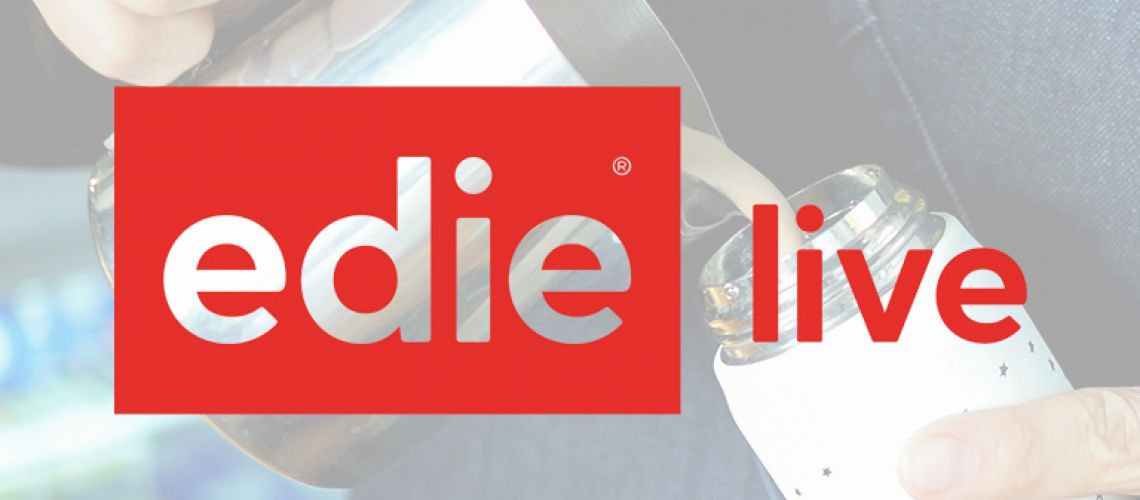Edie Live Event 2019
3 Jun 2019
Written by Gina Moore, Enva’s new Account Manager
Six weeks into my time at Enva I was fortunate enough to visit the Edie Live Exhibition on Tuesday 21st May 2019. I am relatively new to the waste and sustainability industry and try my hardest to do what I can at home in relation to reuse and recycling, but the Edie show opened my eyes even more as to what is going on in the world of sustainability, but also what more we can all do to improve.
Split over two days and with over 100 exhibitors there was plenty to see from the latest in sustainability technology to business leadership. My colleague and I did a loop of the whole exhibition stopping to talk to a few reusable coffee cup stands promoting their business and allowing customers to purchase bulk reusable cups and have them branded for their company to hand out to staff members and customers.
My colleague and I had already ensured we would pop to the Circular Economy Theatre for a few talks that were happening that day. In particular, we took our seat and got comfortable for the ‘Britain and Resource Efficiency Policy: A New Direction for Business’ chaired by Libby Frost (Policy and Parliamentary Affairs Officer). First up was Professor Paul Ekins OBE who ran through his idea on incentives that will shift us to a more circular economy. Paul explained that businesses and individuals will not achieve a circular model alone and will need to ensure the incentives that drive this are cost-effective.
Keep Britain Tidy‘s, Alison Ogden-Newton gave a very enlightening presentation on creating a litter and waste-free society. Allison stated that: “No one organisation can solve the problem of littering in this country on their own. It is only by communities, businesses and charities working together that we can change the littering behaviour of the minority that costs us the best part of £1bn a year to clean up”. Since 2008, the Big Tidy Up has collected more than 12,000 bags of litter from England’s streets. Last year, the event collected just under 4,000 bags with the help of over 30,000 volunteers. Allison was also very clear on where she believes the responsibility of waste lies – the producers. The producers of products should have ownership of the destruction/disposal of their products all the way through their products lifecycle, which I couldn’t agree with more.
We were then fortunate enough to hear from Marcel Arsand, Chairman of Can Makers – the trade body that represents drinks can manufacturers in the UK. He explained that the Can Makers are currently focusing on 6 different areas: sustainable packaging, the proposed Deposit Return Scheme (DRS), the circular economy, recycling aluminium, permanent materials and sustainable design. Marcel’s time focused primarily on sustainability and recycling as he explained we could not discuss drinks packaging without discussing sustainability, with the drinks can being an ‘unsung hero’ for a while. Educating us with many different facts and figures, Marcel highlighted just how reusable and recyclable the aluminium drinks can was - for example, it can take as littles as 8 weeks for a can to be recycled and back on the shelf as another can.
Glenn Smith closed the talk with his focus on changing perception and behaviour in relation to water usage. Drawing on the audience’s heart strings his slide show was emotionally powerful and focused on how our water usage affects the whole world rather than just our little island. Highlighting how small changes in our day to day activities can reduce our water usage such as not leaving taps running, fixing leaky toilets and using left over water in kettles.
The drive home was definitely a moment of reflection and saw me purchasing a reusable water bottle and coffee mug via my Amazon account! What also stuck out to me was Professor Paul Elkin’s upfront statement that he did not believe plastics were an issue, instead people and litter were the issue. I couldn’t agree more with this statement and this tended to be a general theme for the day - everything should be used and produced in moderation and be responsibly reused or worst-case scenario, disposed of. Most materials have a purpose but the longer that purpose is utilised the better for all of us and our planet.

